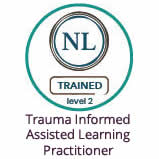
Beyond Titles: Redefining Respect in Work and Family Life
In a world where hierarchy and titles often define interactions, it’s easy to overlook the fundamental human need for respect and understanding. Whether it’s in the confines of our workplaces or within the walls of our homes, the roles and titles we hold can significantly influence our behavior and how others treat us. But what happens when we strip away these titles? This blog explores the transformative power of reassessing our relationships beyond the scope of authority and familial roles, and also how it can help us recognize unhealthy dynamics such as abuse and narcissism.
The Workplace Without Titles
Imagine a scenario at work where the boss, now without the authoritative title, regularly dismisses your ideas. In a title-free world, would this behavior still be acceptable? Often, we tolerate certain behaviors from superiors under the guise of hierarchy. However, removing the ‘boss’ label can bring clarity – your ideas deserve to be heard and valued. This change in perspective empowers employees to advocate for themselves, fostering a culture of mutual respect and collaboration.
Subtle Power Dynamics: Imagine a workplace where the ‘manager’ label is non-existent. Would the subtle belittling or passive-aggressive comments from a superior still be considered acceptable? Often, authority masks these subtler forms of coercion. Removing the title can shift the focus to the behavior, encouraging a healthier, more equitable work environment.
Empowering Self-Advocacy: In a title-free world, employees are emboldened to challenge unfair practices. This empowerment leads to a more dynamic and respectful workplace where ideas and individuals are valued equally.
Family Dynamics Unlabeled
In a family setting, consider a parent who constantly criticizes. Without the protective shield of the ‘parent’ title, would we still pass off such behavior as well-intentioned advice? This shift in viewpoint allows us to discern between constructive guidance and unnecessary negativity. It encourages us to set healthy boundaries, even with our loved ones, and promotes relationships built on genuine respect and understanding, rather than obligation or tradition.
Beyond Familial Obligations: Consider a sibling or a relative who consistently oversteps boundaries. Without the familial bond as a shield, such behavior can be seen for what it is—disrespectful and potentially harmful. Recognizing this helps us establish healthier interactions within our families.
Recognizing Unhealthy Patterns: Another scenario might involve a family member who uses guilt as a tool for manipulation. In a dynamic free from labels, this behavior would likely be identified as coercive, paving the way for more assertive boundary-setting.
The Power of Mutual Respect
This reevaluation is not about undermining authority or familial bonds but about building interactions based on mutual respect. When respect becomes the foundation of our relationships, irrespective of titles, we create environments where everyone’s contributions are valued, treated with dignity and personal boundaries are honored. It leads to more fulfilling and productive personal and professional relationships.
Empowering Personal Advocacy
The journey to this ideal starts with self-advocacy. Speaking up against disrespect in the workplace or setting boundaries within the family requires courage and self-respect. It involves recognizing and asserting your worth, not as a subordinate or a child but as a human being deserving of respect and kindness.
Recognizing and Responding to Unhealthy Traits
Spotting Coercion and Narcissism: Removing titles and roles can also be instrumental in recognizing signs of abuse, coercion, or narcissistic behavior. Whether it’s a boss using authority to exploit or a family member manipulating emotionally, viewing these interactions through an unbiased lens is crucial for identifying and addressing them.
Empowering Action Against Toxicity: Acknowledging such behaviors as unacceptable, regardless of the perpetrator’s role or relation, empowers individuals to take action—be it seeking help, setting boundaries, or leaving toxic environments.
The Ripple Effect
The impact of this shift in perspective can be profound. In the workplace, it can lead to increased employee satisfaction, creativity, and productivity. In families, it nurtures healthier relationships, understanding, and communication. It’s about creating a culture where individuals feel valued and respected, not for their titles or roles but for who they are.
As we navigate our professional and personal lives, let’s challenge the norms that titles dictate. Let’s build a world where respect is a universal language, transcending roles and hierarchy. It’s time to redefine our interactions and embrace a life where we’re valued for our humanity. The journey towards this change starts with us – one interaction, one boundary, and one respectful exchange at a time.
Join the conversation. How have titles and roles influenced your interactions at work and home? Share your experiences and thoughts on moving towards a more respectful and title-free world. Let’s learn and grow together in this journey of empowerment.







Responses